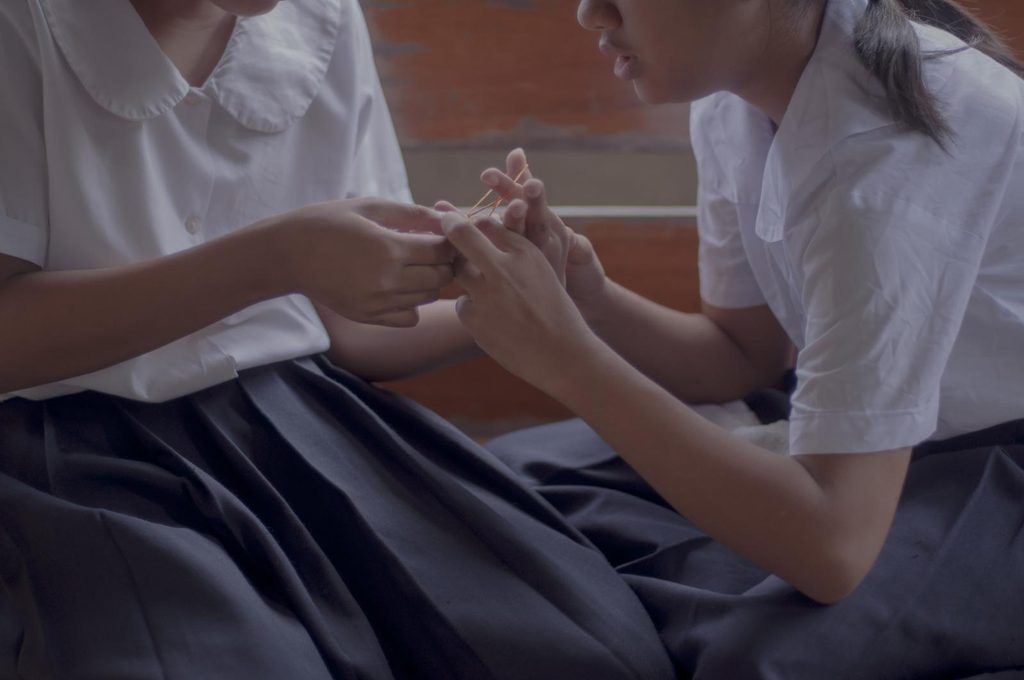The fight against commercial sexual exploitation of children in the Philippines continues. Learn more about this crucial issue and begin the first step in its eradication.

Commercial sexual exploitation of children (CSEC) occurs when people under the age of 18 engage in or are forced into prostitution and pornography in exchange for money or material payment.
Online sexual exploitation of children (OSEC) refers to child sexual exploitation which is facilitated or takes place through the Internet and other related media.
CSEC IN THE PHILIPPINES
Despite the legal mandate to combat CSEC and OSEC in the Philippines through Republic Act 10364 (Expanded Anti-Trafficking in Persons Act of 2012) and Republic Act 9775 (Anti Child-Pornography Act of 2009), CSEC and OSEC remain to be significant problems in the Philippines. The prevalence of CSEC and OSEC can be traced to the widespread poverty in the country. Children – especially those from rural areas – desperate to escape poverty or provide for their families are lured by promises of jobs and material wealth.
While the Philippines remains a Tier 1 country according to the U.S. State Department Trafficking in Persons Report, there is still much to improve upon regarding the country’s efforts at fighting human trafficking and child exploitation. These include expanding the availability and quality of protection and assistance for victims, strengthening preventive efforts and expanding their reach, and addressing the backlog of trafficking cases in courts.
THE FIGHT CONTINUES
We fight to make the eradication of CSEC a national priority in the Philippines. This includes speaking out on the issue and creating an environment conducive to a healthy and open discussion about CSEC and related topics.
As part of this agenda, we are currently lobbying towards certain pending bills in the legislature that will help further institutionalise the fight against CSEC. Among these are:
AMENDMENTS TO THE ANTI-RAPE ACT
There are various bills pending in Congress that seek to amend the Anti-Rape Law of 1997. These bills particularly focus on increasing the minimum age of sexual consent from the current 12 years old. Some of these bills currently pending in the 17th Congress are:
- House Bill 97 (Introduced by Reps. Brosas and De Jesus)
- House Bill 3299 (Introduced by Rep. Escudero)
- House Bill 4050 (Introduced by Rep. Aglipay-Villar)
- House Bill 4148 (Introduced by Rep. Baguilat)
- Senate Bill 1252 (Introduced by Sen. Hontiveros)
HUMAN TRAFFICKING PREVENTIVE EDUCATION PROGRAMME ACT
Most efforts at prevention of human trafficking target adult workers, with children and the youth – who are among the most vulnerable – receive little to no education regarding trafficking.
Two bills seek to institutionalise the Human Trafficking Preventive Education Programme, which seeks to institutionalise trafficking education in schools and Barangays. Youth will receive formal training on concepts such as human trafficking, fundamental human rights, and protective services for victims. These bills are:
- House Bill 4890 (Introduced by Reps. Batocabe, Garbin, and Co)
- Senate Bill 992 (Introduced by Sen. Gatchalian)
STRENGTHENING OUR INSTITUTIONS
Combating CSEC cannot be done alone. We believe that in order to truly eradicate CSEC, a multi-stakeholder, multi-sectoral approach is needed.
RA 9208 mandated the creation of the Inter-Agency Council Against Trafficking (IACAT). IACAT is a government agency composed of representatives from relevant government bodies and civil society organisations.
We aim to foster greater cooperation among the agencies composing IACAT, as well as between IACAT and other society leaders in the public sector, the private sector, and the academia. We call for all sectors to come together in order to effectively address the problem of CSEC.
Through our efforts, we hope to provide a platform for anyone wishing to start a discussion on CSEC and OSEC to speak freely, openly, and without fear of being heard.